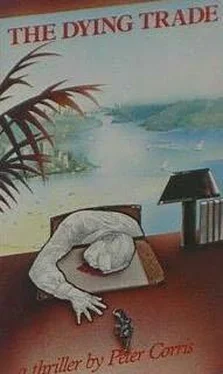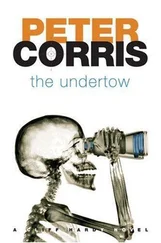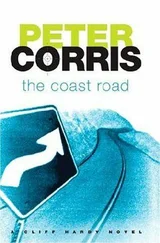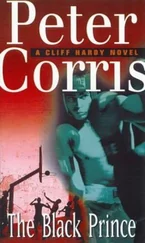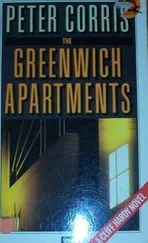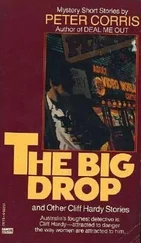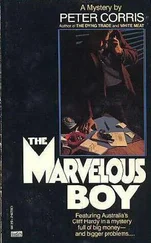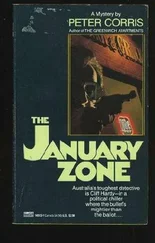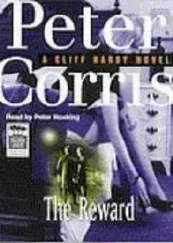Peter Corris - The Dying Trade
Здесь есть возможность читать онлайн «Peter Corris - The Dying Trade» весь текст электронной книги совершенно бесплатно (целиком полную версию без сокращений). В некоторых случаях можно слушать аудио, скачать через торрент в формате fb2 и присутствует краткое содержание. Жанр: Криминальный детектив, на английском языке. Описание произведения, (предисловие) а так же отзывы посетителей доступны на портале библиотеки ЛибКат.
- Название:The Dying Trade
- Автор:
- Жанр:
- Год:неизвестен
- ISBN:нет данных
- Рейтинг книги:4 / 5. Голосов: 1
-
Избранное:Добавить в избранное
- Отзывы:
-
Ваша оценка:
- 80
- 1
- 2
- 3
- 4
- 5
The Dying Trade: краткое содержание, описание и аннотация
Предлагаем к чтению аннотацию, описание, краткое содержание или предисловие (зависит от того, что написал сам автор книги «The Dying Trade»). Если вы не нашли необходимую информацию о книге — напишите в комментариях, мы постараемся отыскать её.
The Dying Trade — читать онлайн бесплатно полную книгу (весь текст) целиком
Ниже представлен текст книги, разбитый по страницам. Система сохранения места последней прочитанной страницы, позволяет с удобством читать онлайн бесплатно книгу «The Dying Trade», без необходимости каждый раз заново искать на чём Вы остановились. Поставьте закладку, и сможете в любой момент перейти на страницу, на которой закончили чтение.
Интервал:
Закладка:
I handed the letter and my licence across to him and he studied them closely for a minute or so. His wife had finished the crossword and was listening intently. Cavendish looked up.
“Don’t you like tea?” he said.
“No, I hate it.”
He smiled and handed back the papers. “You should have said so. But never mind, you’re direct enough and your eyes don’t slide around all over the place. Been in the army ever?”
“Malaya.”
His nod might have been approving, but remembering the quote he’d spouted before I couldn’t be certain.
“I’ll help you as far as I can,” he said. “Have you any more to add at this point?”
“No. I’ll be grateful for all you can tell me about Ross Haines. If you remember him at all.”
He leaned back in his chair and let the sun strike his face. The veins were intact and the high colour was healthy. I decided that it probably came from gardening and walking rather than the bottle. He crinkled his eyes a little with the effort of memory. “I do, very well indeed,” he said. “And there’s a good deal to tell. Haines was in the orphanage for fifteen years or so as you say. He’d been adopted after birth but the parents parted within a year of taking him and he came to us. He also had a slight deformity of the shoulder. It was corrected by an operation when he was three or four, but parents want perfect children so he stayed in the orphanage. He was fostered once but the people returned him after a couple of months. He was uncontrollable. This was when he was about six or seven. He wouldn’t go to school and played merry hell when he was dragged there — wild tantrums, totally negative and destructive attitudes. The couple who took him on were pretty rough, they knocked him about a bit, but I expect he gave as good as he got. After he got back to us he was changed, quiet, cooperative, worked well at school. He was very bright. A bit unnerving really, he was glad to be back at the institution.”
“Did he ever give you trouble after that?”
“Yes, he did. In two ways. He was very mild and amiable, some of the others would tease him, run him ragged for days. He’d let this go on longer than you’d think flesh and blood could stand then he’d turn on them and thrash hell out of them. He was big for his age and strong. Then he’d go back into his shell.”
“How often did this happen?”
“Oh, I suppose half a dozen times. He put one boy in hospital but he’d been unmercifully teased, persecuted really and had shown great restraint. It was impossible to discipline him for it. He was in the right.”
“What was the other way he gave trouble?”
“It was strange. Haines was very able in his studies and he excelled in a variety of sports — beautiful cricketer, natural talent. The sporting ability is very important with these lads, get them into teams, have them travel, meet people. Builds up their confidence.”
“But Haines wouldn’t be in it?”
“That’s so, he wouldn’t play in teams outside the orphanage grounds. In home matches of football and cricket he’d score goals and runs all over the place, but he wouldn’t play the away matches. Dropped him from the teams as discipline, all that, made no difference. He hated stepping outside the place, excursions were a nightmare to him, eventually we stopped taking him. He’d stay behind and read or train for some sport or other. Probably haven’t made it clear: he was a great reader, read everything and he retained it. They wanted him for a television children’s panel game, brains trust sort of thing, you know?”
“Yes, I think they’re ghastly.”
“Just so, but some children thrive on them in a way. Haines went white when it was put to him, he refused to consider it. He was violent.”
“How did the suggestion come up in the first place?”
“Haines had been entering competitions in newspapers, puzzles and general knowledge things. He was an omnivorous newspaper and magazine reader, devoured the things. Won prizes all the time.”
“What sort of prizes?”
“Book vouchers mostly, money too, small sums. It was banked for him. The newspaper people must have talked to the television people, same crowd I expect, and they approached us about him. Well, he reacted as I told you, he threw things, went into one of those rages that he used to display in fights. And he stopped entering competitions, never touched them again. He seemed to ease back on everything, he’d pass his subjects at school and do respectable things with the bat, but all the brilliance was gone. Sometimes it would flash out, so would the ungovernable temper, it was all still there but he kept it completely under control. He could probably have got a scholarship to go on studying but he had a horror of competing. He opted to go to work at fifteen or so, gardening I think it was?”
“That’s right.”
“He left us when he was sixteen, he was earning a wage, boarding with a respectable family, time to go.”
“Did you ever see him after he left, or hear from him?”
“Never.”
“What was your relationship with him like?”
“Quite good, as far as he’d let it be. I used to nag him a bit about not trying his best, but I gave that up. He was his own man from a very early age.”
“At some time he discovered who his mother was, or became convinced he knew. Could you pin-point a time when that might have happened?”
Cavendish looked across at his wife. “You remember Haines dear,” he said, “can you help with this?”
She took off her gold rimmed spectacles and polished them on the sleeve of her cardigan. “Yes,” she said quietly, “I believe I can.” She replaced the glasses precisely. “Haines was involved in the office incident, wasn’t he? About the same time as the television idea came up. He was in a state over that and his part in the affair was never clear.”
I sat up, this sounded like it. “Could you please explain, office breaking…?”
“There was what I believe is called a sit-in at the orphanage,” said Cavendish. “Some of the boys were protesting about being denied access to their personal records. They aren’t permitted to see them, that’s the law. Right or wrong, that’s the law. Some of the older boys broke into the office, barricaded themselves in there and ransacked the filing cabinets.”
“Haines was one of them?”
“No, his part in it was curious. He volunteered to act as negotiator. The boys were on hunger strike in the office. Haines went in and talked to them and they came out. He was in there for about an hour. It wasn’t a popular act.”
“Why not?”
“There was some talk that Haines had put the others up to it. He denied it and it was never confirmed, the accusation was put down to spite. But there were whispers. Some of the boys were eager for a fight, and the intermediary was seen as something of a spoilsport.”
“Haines could have seen a file on him when he was in the office?”
“Yes.”
“What information would that carry?”
“Date and place of birth, parents’ name or names if available, medical details.”
“Haines’ file, did that have his mother’s name on it?”
“I don’t know but almost certainly it would. Such records are very precise and very private.”
“And a marked change in Haines’ behaviour dates from this time?”
Cavendish spread his hands out on the table, there were fine white hairs across the backs and the nails were broad and strong, no nicotine stains, no tremors.
“It does, Mr Hardy. We put it down to the idea of going on television. The impact of that on him seemed more dramatic than the other affair which only lasted a couple of hours. But it could have been due to the discovery of his mother’s name.” Cavendish paused, then he rapped his knuckles against the table. “No, no, how stupid of me. Those records were all computer coded in the late sixties. Haines couldn’t have got a name from his file, just a number. Still, that might have been enough to set him off, certainly the psychologists said he was obsessed with the parentage problem.”
Читать дальшеИнтервал:
Закладка:
Похожие книги на «The Dying Trade»
Представляем Вашему вниманию похожие книги на «The Dying Trade» списком для выбора. Мы отобрали схожую по названию и смыслу литературу в надежде предоставить читателям больше вариантов отыскать новые, интересные, ещё непрочитанные произведения.
Обсуждение, отзывы о книге «The Dying Trade» и просто собственные мнения читателей. Оставьте ваши комментарии, напишите, что Вы думаете о произведении, его смысле или главных героях. Укажите что конкретно понравилось, а что нет, и почему Вы так считаете.
